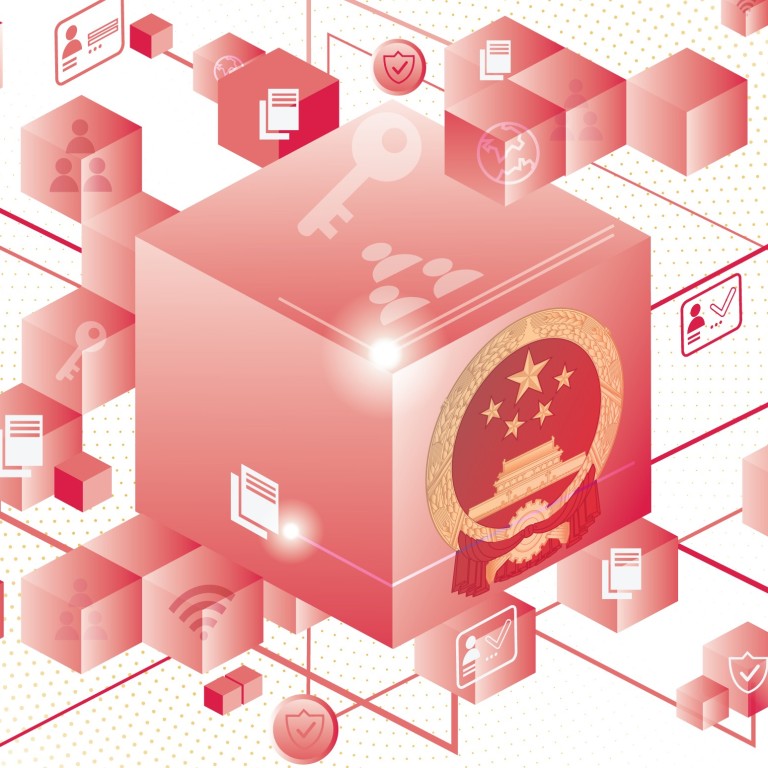
China start-up launches blockchain-based platform to improve donation efficiency amid virus crisis
- Initiated by blockchain start-up Hyperchain and China Xiong'an Group, the platform had recorded information on 500 donations as of Thursday
A blockchain-based donation tracking platform has been launched in China, aimed at improving the transparency and efficiency of giving at a time when some traditional charities have come under fire for poor distribution of resources to people in need.
Shanzong, which was launched on Monday, tracks what kind of donations are given, from money and masks to medical materials, how they have been matched to areas of need, and when they have been delivered, according to its maker.
Initiated by blockchain start-up Hyperchain and China Xiong’an Group, the platform had recorded information on 500 donations as of Thursday morning. Existing donors include New Sunshine Charity Foundation and Yuegou Living Supermarket, while donation recipients included the Tongshan People's Hospital, Jiayu People’s Hospital and Xiantao No. 1 People’s Hospital in Hubei province – all of which are treating people infected with the coronavirus.
In China, a series of scandals over the handling of public donations and distribution of aid has damaged people’s confidence in some state-backed charity organisations. More recently, some hospitals have reported shortages of masks used by front-line medical personnel to protect themselves as they treat patients, sparking an outcry on social media.
On February 1, the Red Cross Society of Hubei issued a statement on its website saying they were “deeply distressed, blamed themselves and felt guilty about problems with the distribution of donated materials”.
“Shanzong guarantees the authenticity of donation information by putting it on the blockchain, which then cannot be changed or deleted,” Hyperchain said in a statement. “This is the biggest difference [with traditional charitable donations].”
Blockchain is a distributed ledger where each participant can share, synchronise, authenticate and secure information. The data, maintained in chained records called “blocks”, is not owned by any single authority. The decentralised design is aimed at making it fully transparent and tamper-resistant. It is a technology that Chinese President Xi Jinping threw his authority behind in 2019.
Meanwhile, the coronavirus outbreak in China has given a push to many new technologies, including blockchain, artificial intelligence (AI) as well as drones and robots, as authorities seek to better detect, diagnose and respond to the deadly disease.
National AI champions Megvii and Baidu have rolled out advanced temperature screening systems in major Beijing railway stations.
Autonomous robots have also replaced human cleaners at segregated wards to reduce infection rates. In more remote parts of the country, local authorities are using drones equipped with loudspeakers to monitor citizens seen in open areas without face masks.
Last December, Spring Bud, a long-running charity programme aimed at helping poverty-stricken girls finish their schooling, came under fire after it was found to be funding the education of boys as well – prompting some people to accuse it of adding to gender inequality in China.
In 2011, China Red Cross came under fire after online celebrity Guo Meimei flaunted her flashy lifestyle on social media to millions of followers, while claiming that she worked at a firm linked to the state-backed Red Cross Society of China. The charity denied it had any links with Guo whatsoever.
Purchase the China AI Report 2020 brought to you by SCMP Research and enjoy a 20% discount (original price US$400). This 60-page all new intelligence report gives you first-hand insights and analysis into the latest industry developments and intelligence about China AI. Get exclusive access to our webinars for continuous learning, and interact with China AI executives in live Q&A. Offer valid until 31 March 2020.

